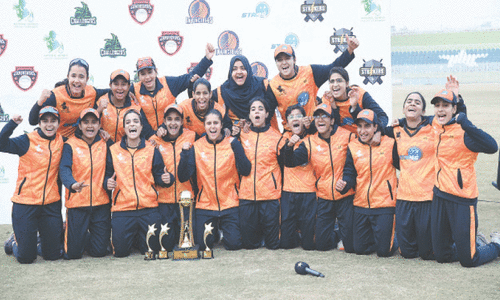KARACHI, Sept 8: Pakistan all-rounder Shahid Afridi on Sunday said he has joined online social networking service Twitter to keep in touch with his fans around the world.
The 33-year-old hard-hitting batsman, also known for his wily leg-spin bowling, is a major crowd puller in international cricket.
He has been a hit with the crowd ever since hitting a 37-ball hundred in his only second one-day match, against Sri Lanka at Nairobi in 1996 — which still remains a world record for the fastest century in the 50-over format.
Known for big hitting, Afridi is the only player in international cricket who has hit more than 400 sixes in all three forms of the game — a milestone he reached in the West Indies in July this year.
Afridi said he has opened an account on Twitter to keep in touch with his fans, who often complain of being deprived.
“I have opened an account to keep in touch with my fans around the world and I took this step as hundreds of fans meet me and complain that they can’t reach me to show their sentiments,” Afridi said.
Afridi said he can be reached at safridiofficial on Twitter and from there fans can also get a chance to talk to me.
“Ever since I have opened the account I have received hundreds of calls from as far as USA, Russia and from India and I want to give a friendship message to the people around the world,” the all-rounder said.
Afridi, who returned from Zimbabwe after featuring in Pakistan’s 2-1 series win, said the team was shaping well for the major clash against South Africa, beginning next month.
“We are tuning up for the major series against South Africa and then against Sri Lanka and I hope we put up our best performances in both the assignments,” said Afridi, who has so far played 362 One-day Internationals and 63 Twenty20 Internationals for Pakistan.
He retired from Test cricket in 2010 after playing 27 matches.
Pakistan take on South Africa in two Tests, five one-dayers and two Twenty20 Internationals in October-November before playing Sri Lanka in two T20s, five one-dayers and three Tests in December-January — both on the neutral venues of the United Arab Emirates.











































